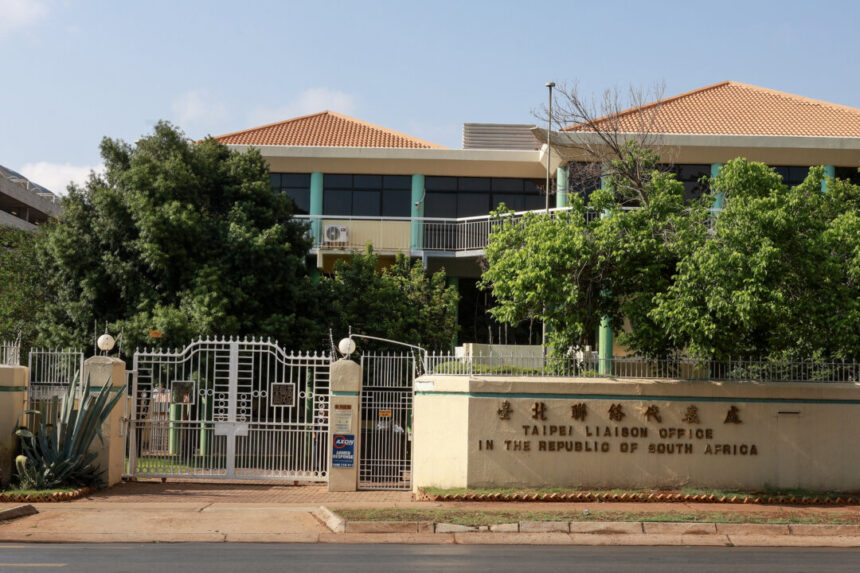South Africa has demanded that Taiwan relocate its official representative office from Pretoria, the capital city, as China increases pressure on countries to isolate Taiwan, a key U.S. ally. This move has sparked condemnation from some U.S. lawmakers, who are calling for consequences. The South African government has set a deadline for Taiwan to vacate its premises in Pretoria by the end of October and move to Johannesburg, or face action to enforce the relocation. This decision has raised concerns among U.S. legislators, with Senator Marsha Blackburn urging the Biden administration to take action against South Africa for collaborating with China to bully Taiwan. She specifically mentioned the possibility of removing South Africa from the AGOA trade program, which benefits African countries with tariff-free access to U.S. markets. South Africa’s significant reliance on AGOA underscores the potential impact of such a move. Other lawmakers, including Michael McCaul and Tom Cotton, have also criticized South Africa for its actions and called for a reevaluation of its relationship with the United States. The Taiwanese government has vowed to resist this demand and seek support from allies in opposing what they consider an unreasonable request. The role of China in pressuring South Africa to make this decision further complicates the situation, highlighting the complex geopolitical dynamics at play in the region. The U.S. sees Taiwan as a crucial ally in countering Chinese influence and aggression in the Indo-Pacific, making this issue a matter of strategic importance for the Biden administration. South Africa’s recent move regarding Taiwan has stirred up tensions in Washington.
Pretoria’s request came as top representatives from South Africa met with their Chinese counterparts at the BRICS Summit in Russia, shortly after China conducted military exercises near Taiwan.
Differing Opinions in South Africa
Phiri, a spokesperson for South Africa’s international relations department, stated that the BRICS meeting and China’s military activities are not linked to the Taiwan issue in Pretoria.
Phiri emphasized that relocating and rebranding trade offices in Taipei and Johannesburg reflects the non-political and non-diplomatic nature of the South Africa-Taiwan relationship.
Emma Powell, a representative of South Africa’s Democratic Alliance, vowed to defend Taiwan’s office in Pretoria.
The DA, along with the ruling African National Congress (ANC), forms part of a fragile coalition government following the ANC’s loss of an outright majority in the recent election.
Powell criticized the ANC for its unilateral decisions on foreign policy and emphasized the need for a consensus-based approach to navigating geopolitical issues.
The ANC has a long history of close ties with the Chinese Communist Party (CCP).
When Nelson Mandela became president in 1994, he aimed for amicable relations with both China and Taiwan.
Despite pressure, Mandela maintained Taiwan’s presence in Pretoria until 1997 when diplomatic recognition shifted to the People’s Republic of China.
However, Taiwan continued to operate a de facto embassy in South Africa.
The Taipei Liaison Office in South Africa
Acting as a de facto embassy, the Taipei Liaison Office in South Africa handles visa issuance, trade facilitation, and official business between South Africa and Taiwan.
Taiwanese officials have indicated that the office also manages humanitarian aid programs in South Africa.
South Africa exported goods worth nearly $1 billion to Taiwan in 2023, including coal, grain, and automobiles.
Powell emphasized the importance of maintaining Taiwan’s trade representation in South Africa and expressed concerns about the impact of strained relations with Taiwan on South Africa’s ties with the United States.
Powell criticized the ANC for aligning with countries considered adversaries by the US and warned against escalating tensions with Taiwan, a key American ally. Please rewrite this sentence.
Source link






